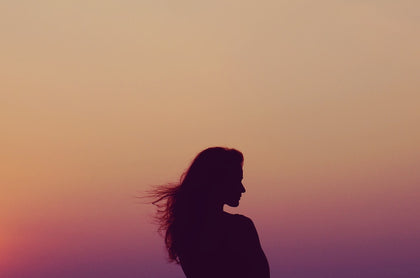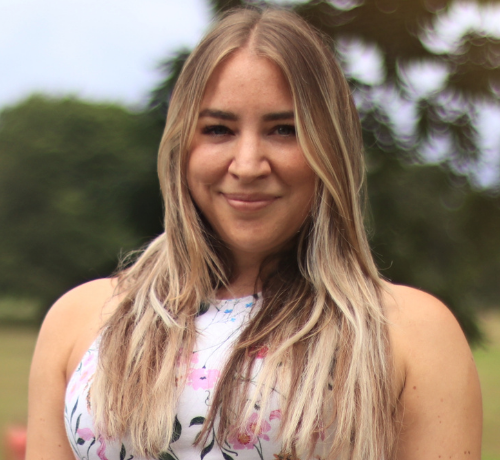Pregnant women or those who experience heavy menstrual cycles are at risk for iron deficiencies, which can trigger a multitude of symptoms — from headaches to restless legs. But is there such a thing as iron deficiency hair loss?
Do you need iron in your diet to prevent future hair loss, and is an iron-rich diet always necessary? VEGAMOUR dug into the research to uncover all you need to know about the iron deficiency and hair loss connection — plus, find out what products you should use to encourage thicker, healthier hair.
What Is an Iron Deficiency?
Registered dietitian Anne Bohnengel MS, RD, LD, who specializes in women's health and fertility, explained, "Iron is a key building block of the protein hemoglobin, which travels in red blood cells delivering oxygen throughout the body. Deficiency is relatively common in the U.S., particularly among menstruating and pregnant women." For postmenopausal women (and men), the most common cause of iron deficiency is malabsorption and gastrointestinal blood loss.
Hemoglobin is the protein in your system that carries oxygen to your tissues. Iron deficiency anemia is the most common type of deficiency and occurs when the hemoglobin levels in the red blood cells drop. When someone is iron deficient, there isn't enough iron intake for the blood to make hemoglobin, resulting in the body not getting the oxygen it needs.
According to the American Society of Hematology, many people don't recognize the signs of an iron deficiency. They are only made aware after a routine blood test which considers a complete blood count and serum ferritin concentration.
"The first step to screen for iron deficiency is to get a complete blood count (CBC), which will measure your hemoglobin levels, your red blood cell count, your hematocrit (the % of your blood made up of red blood cells)and your MCV (the size of your red blood cells)," said Bohnengel. It's also possible to experience some symptoms with low iron levels rather than a deficiency.
Find Out: The Best Products for Thinning Hair
Symptoms of an Iron Deficiency
The symptoms of an iron deficiency can include:
- Headaches (particularly in those menstruating)
- Shortness of breath with exertion
- Dizziness
- Unusual tiredness
- Pale skin
- Swollen tongue
- Hair loss
- Restless legs
- Poor appetite
Bohnengel told VEGAMOUR, "An iron deficiency can occur from not absorbing the iron you eat, i.e., if you're eating too much plant-based iron ... or if you have GI issues preventing absorption — like inflammation (celiac disease, Crohn's or ulcerative colitis). It may also occur if you're not producing enough stomach acid or not chewing your food enough."
A restrictive diet (to allow for celiacs, Crohn's or ulcerative colitis) can cause someone to take in less iron than usual. If someone doesn't absorb iron properly from their diet, they might experience adverse symptoms. Iron is absorbed into the body via the small intestine, which means intestinal conditions can contribute to a deficiency.
Shop: Anna Grace Newell's Favorite VEGAMOUR Picks
Iron Deficiency and Female Pattern Hair Loss: Is There a Link?
Over the past 40 years, many studies have taken place looking at women, thinning hair and iron deficiency anemia. Some research suggests the relationship between excessive hair loss and iron deficiency is prevalent. An iron-deficient person might experience hair loss that looks like traditional female pattern hair loss, aka androgenetic alopecia.
One study found that, after considering the total iron-binding capacity of both males and females, iron may play some role in hair loss. Low iron stores may cause the hair to fall out similarly to male and female pattern baldness. An iron deficiency may also be connected to diffuse telogen hair loss or chronic telogen effluvium. However, more research must be conducted to prove the evidence conclusive.
Treating Iron Deficiency and Hair Loss
To prevent permanent hair loss, promote hair regrowth and ensure iron levels remain healthy, here are some steps you can take.
- Eat a balanced diet full of minerals and nutrients. Think like Popeye and pick protein-rich, iron-rich foods to help promote hair growth. Foods like spinach, peas, lean proteins, nuts, leafy greens and even dried fruit are great sources of dietary iron.
- Add more vitamin C to your diet. Iron can only be efficiently absorbed into the body via vitamin C, so eat your share of strawberries, tomatoes, oranges and melons.
- Enhance an iron-poor diet with supplements packed with various minerals and vitamins. Iron is important, but if you're struggling with hair loss, enhancing your overall hair health with a blend of nutrients and minerals is good practice. Consider hair vitamins that contain biotin, folic acid, iron and a variety of vitamins to encourage thicker, fuller-looking hair.
- Treat your strands with care. If you want to regrow hair after a bout of iron deficiency, avoid hair dyes and other chemical processes. Also, wash hair with gentle, sulfate-free shampoo and avoid using hot tools like curling irons or straighteners to minimize damage.
- Use a hair serum. Whether working with an iron deficiency or not, maintain the integrity of hair and help combat hair loss by using a daily hair serum. GRO Hair Serum is a plant-based formula that supports a healthy and balanced follicular system. It's free of toxins, made with a blend of powerful phyto-actives and is clinically proven to increase the appearance of hair density and help reduce the signs of hair loss in few as 90 days.
Risk Factors to Consider
If the thought of an iron deficiency has you desperately reaching for an iron supplement, it's worth noting that too much of a good thing might also create problems. Bohnengel explained, "Too much iron can accumulate in tissues and cause oxygenation, or damage at the cellular level, including to the skin cells that grow hair."
Moderation is key, so consult with a doctor before taking iron supplements. In worse-case scenarios, an iron overdose might trigger abdominal pain, irritability, increased heart rate, vomiting or even complete liver failure.
It's also possible that your hair loss might be caused by something other than iron deficiency, such as thyroid disease, PCOS or lupus, which a doctor can diagnose.
Related: Why Is My Hair Falling Out? Here Are 12 Possible Reasons
Hair As Strong as Iron
Though the research is ongoing, it seems there is a link between iron and hair loss in some people. But hair loss can occur for many reasons. Other medical conditions, stress, a poor diet, hormonal changes and a generally unhealthy lifestyle can all contribute.
Encourage healthier, stronger, longer hair with a holistic approach to both hair and body wellness. Eat a well-rounded diet, reduce stress, hydrate, get plenty of sleep and practice a hair wellness routine that will maximize your mane's potential. Both you and your hair will benefit!
#include-related-slider#
More From VEGAMOUR
- Shop: Best Products for Thinning Hair
- PCOS and Hair Loss Explained
- Here's How Gut Health and Hair Loss Are Related
- Is Hair Slugging the Next Big Trend?
Photo credit: Ahmet Sali/Unsplash
Back



















